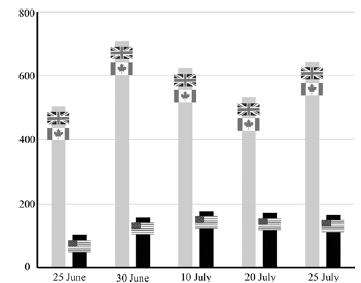@Clyde85:
Lazarus,
You have to realize that you have zero credibility at this point and with every post you just keeping digging the “i’m a jingoistic Anglophile” hole you’ve put yourself in alittle bit deeper. You came here to wave the union jack and try to uphold the honor of your golden boy Montgomery, but have only made yourself look silly.
I am going to ignore any further posts you put here about how glorious the bold and invincible Montgomery was and How the British had the biggest army in NW Europe and single handedly won the war, God Save the Queen!
So what are some over-rated Axis commanders?
I agree that Lazarus lacks credibility; and that his participation in this discussion has been very biased. For him, “Montgomery never suffered a reverse” means the same thing as “Montgomery was at least as good as Patton,” and anyone who thinks otherwise has succumbed to “legend.” He has used his participation in this discussion to make exaggerated or misleading claims, biased interpretations, inflammatory rhetoric, etc.
However, I have no reason to believe Lazarus is an Anglophile. I think his reason for trying to convince us that Montgomery was as good or better than Patton has nothing to do with Montgomery or Britain, and everything to do with Patton. Lazarus’s political views are very far to the left–so much so that I cannot recall a single instance in which he’s written something with which a communist would have disagreed. Patton had right wing political views, and protested the harsh treatment meted out to German civilians after the war. Lazarus has evidently decided this particular hero of the right needs to be torn down. That is why his tone has been so strident, and why he’s made so little attempt to engage in reasonable or dispassionate discussion. He gets like this whenever he defends his own political views, or attacks someone with different views.
For at least the last half page or more, he has succeeded in derailing the discussion away from big picture questions, and sidetracking it into pedantic squabbles with little bearing on the overall question. As an example, in post 70 on this thread, he mentioned that in June and July of '44, most of Germany’s Western European tank strength was allocated against the British portion of the Normandy invasion, not the American portion. But his data are relevant only for the time around Operation Goodwood. He has not shown us that Montgomery had done anything particularly creative during that invasion. If anything, Montgomery’s advance looks clumsy and inept, even taking into account the fact that he actually (gasp!) had to face a reasonably large and well-prepared enemy force.
The (very limited) gains of Goodwood were due in large part to the initial, massive aerial bombardment. The area subjected to aerial bombardment had been small, so as to allow massive concentration of firepower. Once the British had moved past that area, British divisions generally ground to a halt. Goodwood cost the British 250 - 400 tanks, as compared to 75 - 100 tanks for the Germans. Admittedly, German tanks–or at least Panthers and Tigers–were significantly better than their British counterparts. On the other hand, the Allies had complete air supremacy, and many of Germany’s tank losses were the result of aerial attacks.
Goodwood was an uncreative, brute force approach which achieved very minimal success at a high cost. Its main accomplishment was to keep German attention turned primarily towards the British force in the immediate aftermath of Goodwood, thereby facilitating the subsequent American breakout during Operation Cobra. Nothing I’ve read, either in this discussion or elsewhere, has even suggested the possibility that Montgomery did anything special during Operation Goodwood–anything beyond what one would expect of a standard-issue general of average ability. While it may be too much to expect every battle a general fights to display strategic brilliance, Lazarus has not shown us any instance in which Montgomery rose above the level of a standard-issue average general. Montgomery’s performance at the Battle of the Bulge does meet that standard; albeit to a lesser degree than Patton’s performance during that battle. But other than the Battle of the Bulge, I can’t think of any examples of Montgomery having risen above an average level of competence.
Lazarus seems intent on convincing us that Montgomery was at least Patton’s equal. He’s not going to be able to do that by objectively discussing the relative merits of the two generals; because that kind of discussion would clearly favor Patton. He seems to think his best bet is to sidetrack the discussion into debates about relative German, British, Canadian, and American force concentrations in the months immediately after the D-Day landing; with the unstated implication being that those figures somehow support the notion that Montgomery was at least as good as Patton. I advise you and the other participants in this thread to avoid getting sidetracked by that kind of stuff. Stay on topic by demanding specific examples of how Montgomery exceeded the level one would expect from an average general. Such examples will be very few and far between!






